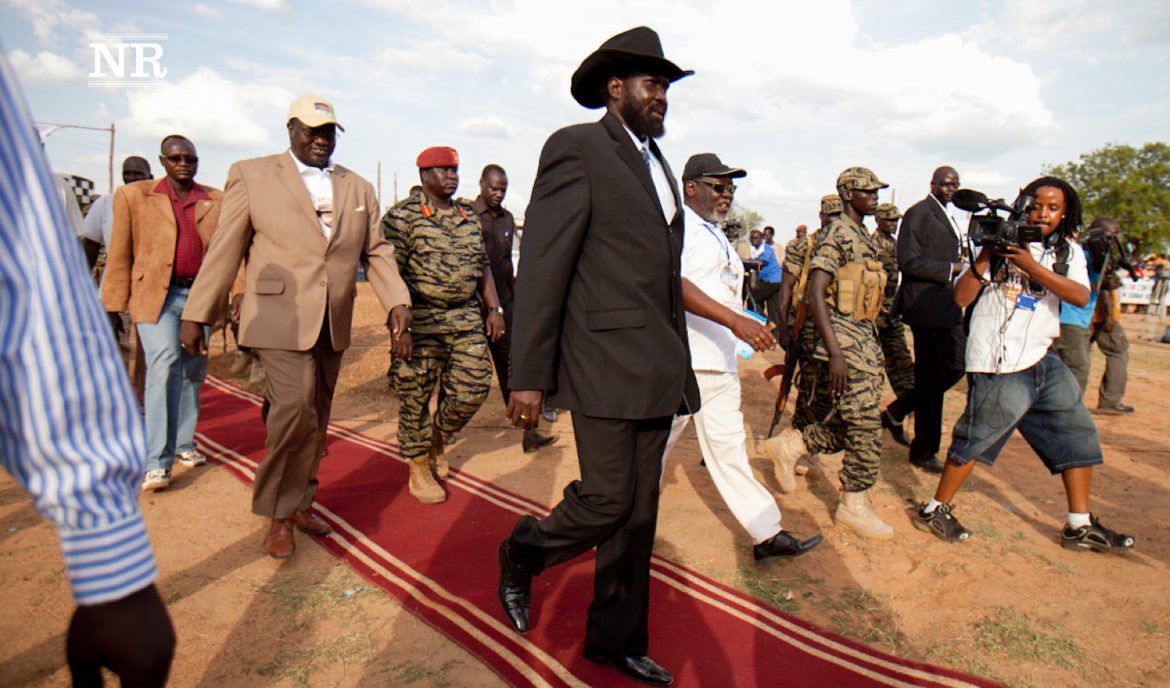Fighting is spreading across South Sudan as a military crisis branded an “attempted coup” enters its fifth day.
South Sudan’s military says it has lost control of Jonglei state capital Bor after military commander Peter Gadet attacked the town in the early hours of Wednesday morning.
Residents of Bor told Nuba Reports nearly all of the town’s people have fled, leaving the new rebel commander in control of the empty capital. This is the second time in two years Gadet has broken with the government, after rebelling against and swiftly rejoining the SPLA in 2011.
Residents in Unity State – the home of former Vice President Riek Machar – told Nuba Reports sporadic fighting broke out early Thursday among residents in the town. There have been some retaliatory attacks against Dinka civilians. Some civilians have fled the town and workers at the state’s oil facilities have sought shelter at the UN Base there. The United Nations Mission in South Sudan – UNMISS – says it is sheltering civilians at bases in Jonglei, Lakes, Central Equatoria, Northern Bahr el Ghazal and Unity States.
The fighting has set factions of the army loyal to former Vice President Riek Machar against those loyal to president Kiir. Machar was immediately accused by the president of attempting to overthrow the government after clashes broke out in the capital, Juba on December 12. Machar has denied any involvement in a plot against the government.
Though the former Vice President described the paroxysm of violence as the result of a “misunderstanding” between different factions of the army’s Presidential Guard, the fighting now threatens to destabilize the whole of the new nation. In a statement released December 18, the International Crisis Group wrote the country was “arguably on the cusp of a civil war.”
Some reports of ethnic violence have also filtered out. Residents in Juba have described police conducting house to house searches for Nuer civilians and even summary executions at checkpoints around the city. Reports of the killings are difficult to verify. “The awful accounts of killings in Juba may only be the tip of the iceberg,” said Human Rights Watch Africa director Daniel Bekele in a press release Thursday.
Several opposition politicians aligned with the Vice President have been arrested in past few days. Speaking by phone, South Sudan’s Foreign Minister Barnaba Marial Benjamin said that Former Unity State Governor Taban Deng had been arrested Tuesday, though other conflicting reports describe Deng as still at large.
On December 17, the Government of South Sudan published a list of politicians arrested during the crisis as well as those still wanted by the authorities for their involvement in the alleged coup.
The former Secretary General of the Ruling SPLM Party – Pagan Amum – was arrested Thursday after several days in hiding.
Former Vice President Riek Machar has not been seen in public since fighting erupted in the capital, Juba, the night of Sunday, December 15. In interviews with several news organizations, Machar has criticized President Salva Kiir, accusing him of using the incident to suppress dissent within the SPLM, saying he was “no longer a legal President.”
As fighting broke out Sunday, residents and international aid workers based in the city described scenes of chaos to Nuba Reports, with gunfire ringing throughout the night and loud explosions rattling windows in Juba’s central residential areas. The fighting has been carried out by factions of the army loyal to the Former Vice President and those loyal to current President Salva Kiir.
Speaking Monday, Kiir refered to Machar as a “prophet of doom,” saying “my government is not and will not allow the incidents of 1991 to repeat themselves again.” Kiir was referring to Machar’s split with the rebel SPLA during the Sudanese civil war. Machar signed a peace agreement with Khartoum and joined the government of Sudan, only to rejoin his forces with the SPLA in 2002.
After two days, the Juba airport was reopened, and international workers began lining up to flee the country. The US Embassy as well as several humanitarian and development organizations have begun to evacuate non-essential staff.
The alleged coup attempt and subsequent violence is the latest and perhaps final consequence of an escalating struggle between Machar and Kiir for control of the SPLM. In July, the President sacked his entire cabinet – including Machar. SPLM Secretary General Pagan Amum was also removed from his post for allegedly mishandling party finances.
Since then, calls for new party leadership have grown from Machar and his allies in the party. With national elections scheduled for 2015, several members of the SPLM have called on Kiir to gather SPLM leadership to decide the next head of the party.
President Kiir has offered to meet with Machar, but did not guarantee deal would come of the meeting. As the crisis continues, it is becoming less and less likely the rifts within the military and the ruling party can be repaired. According to the International Crisis Group, “The blurred lines between these institutions, senior political figures and ethnic communities– as well as wide-scale arms proliferation—make the current situation particularly volatile.”
(list of politicians implicated in alleged coup plot in addition to Machar. via GOSS Online Website Dec 17)
Oyay Deng Ajak
Geir Choung Aloung
Majak Agot
John Luk Jok
Cirino Hiteng
Koul Tong Mayai
Izekeil Lul
Deng Alor Koul
Madut Bier and
Kosti Manibe
Alfred Ladu Gore
Pagam Amum
Taban Deng Gai
Adwok Nyaba





